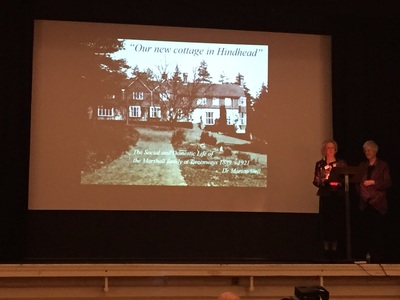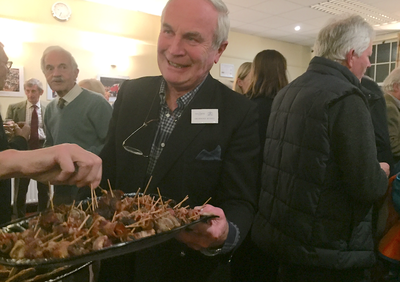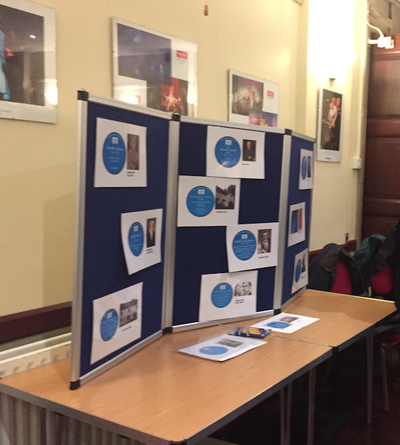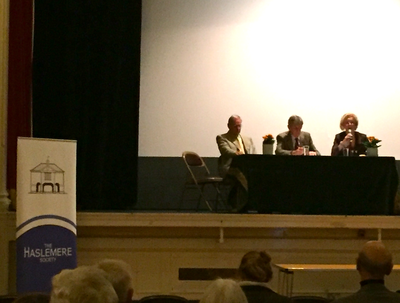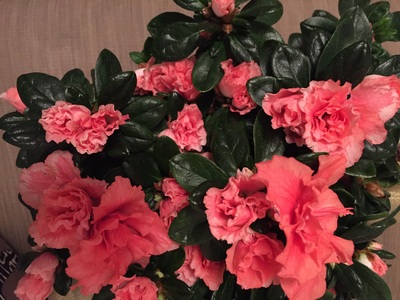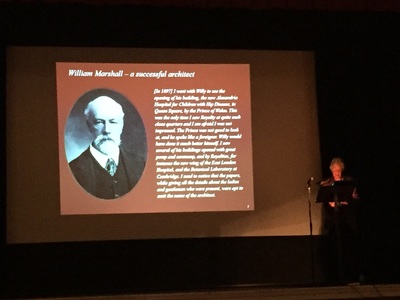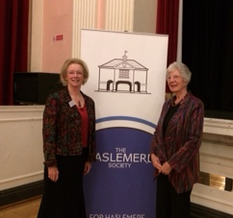
Annual General Meeting, Friday 18th November 7.30pm, Haslemere Hall
An illustrated talk by Dr Marion Dell followed by drinks and canapés.
Marion Dell’s gave a fascinating talk on 'Our new cottage in Hindhead' about the social and domestic life of the Marshall family who built Tweenways, now the Hindhead Music Centre, and lived there from 1889-1921. At first it was their weekend retreat from London, later their home. William Marshall was an architect and runner up in the first Wimbledon lawn tennis final in 1877. Mrs Marshall was an active suffragette and an accomplished pianist. They were friendly with Tennyson and most of the eminent Victorians who had moved to Hindhead. Both became energetically involved with local affairs, especially those to do with Commons Preservation, music, sport, science,health and education. They hosted many dinner parties and social gatherings including lively amateur theatricals, guests including Arthur Conan Doyle. They invited Canadian officers, billeted nearby in makeshift huts at the beginning of WW1, to come for musical afternoons which included tea as well as the opportunity for a bath and to have their socks washed by the maids.
An illustrated talk by Dr Marion Dell followed by drinks and canapés.
Marion Dell’s gave a fascinating talk on 'Our new cottage in Hindhead' about the social and domestic life of the Marshall family who built Tweenways, now the Hindhead Music Centre, and lived there from 1889-1921. At first it was their weekend retreat from London, later their home. William Marshall was an architect and runner up in the first Wimbledon lawn tennis final in 1877. Mrs Marshall was an active suffragette and an accomplished pianist. They were friendly with Tennyson and most of the eminent Victorians who had moved to Hindhead. Both became energetically involved with local affairs, especially those to do with Commons Preservation, music, sport, science,health and education. They hosted many dinner parties and social gatherings including lively amateur theatricals, guests including Arthur Conan Doyle. They invited Canadian officers, billeted nearby in makeshift huts at the beginning of WW1, to come for musical afternoons which included tea as well as the opportunity for a bath and to have their socks washed by the maids.

